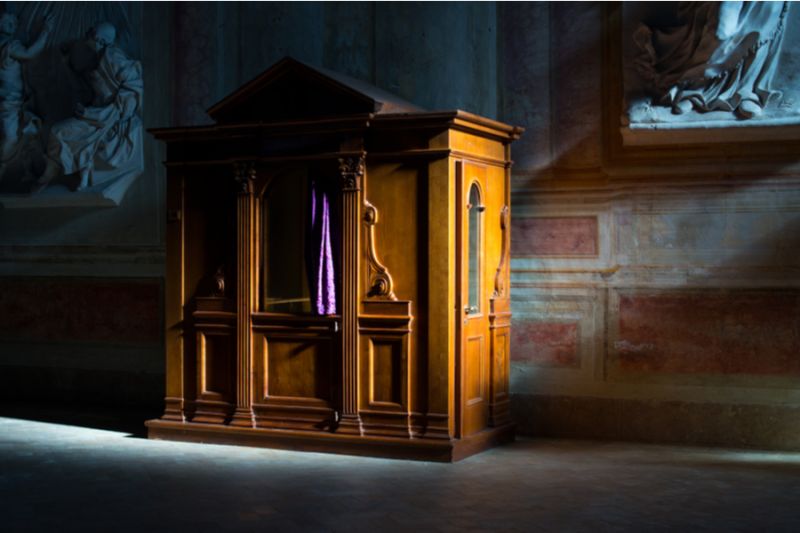Washington bishop: Priests would rather go to jail than break seal of confession

 null / Quisquilia/Shutterstock
null / Quisquilia/Shutterstock Washington D.C., Apr 20, 2023 / 15:30 pm (CNA).
As Washington state lawmakers debate legislation that would end legal protections for the seal of confession, Spokane Bishop Thomas A. Daly has assured his diocese that priests would opt for a jail sentence before they would break the seal.
“I want to assure you that your shepherds, bishop and priests, are committed to keeping the seal of confession — even to the point of going to jail,” Daly wrote in a letter to Catholics in the Diocese of Spokane, which covers eastern Washington.
“The sacrament of penance is sacred and will remain that way in the Diocese of Spokane,” he said.
The bishop’s April 19 letter referred to a state Senate bill that would make priests mandatory reporters of abuse. The original Senate-passed bill included an exemption for information that priests obtain during a confession, which was included to protect the seal of confession. However, the House-passed version included an amendment that eliminated legal protections for the seal of confession and would threaten priests with jail time if they refuse to disclose information heard during a confession.
On April 17, the Senate refused to agree to the House’s amendment and sent the original bill back to the House. Now, the House must choose whether it wants to insist on its amendment, defer to the original Senate bill, or offer another alternative. If the House decides to insist on its amendment or offer another alternative, the legislation would then be sent back to the Senate again. If it defers to the original Senate language, the bill will head to the governor’s desk.
Any legislation that would try to force priests to violate the seal of confession would pit civil law against canon law. Canon 983 of the Code of Canon Law states that the seal of confession is “inviolable.”
“It is absolutely wrong for a confessor in any way to betray the penitent, for any reason whatsoever, whether by word or in any other fashion,” the canon declares.
The penalties for violating the seal of confession are strict. According to Canon 1386, if a priest “directly violates the sacramental seal,” he would incur an automatic excommunication. Any priest who violates the seal indirectly “is to be punished according to the gravity of the [offense].”
In his letter, Daly encouraged lawmakers to “make good law which is able to be followed and enforced” and remained optimistic that religious freedom would prevail.
“The state of Washington is not the first governing body to attempt to criminalize our commitment to keep the seal of confession sacred,” the bishop wrote. “History is replete with examples of kings, queens, dictators, potentates, and legislators who have attempted to have the seal of confession violated through law, coercion, or fiat. All have failed.”
A spokesperson for the Washington State Catholic Conference told CNA that the organization is working with lawmakers to craft a bill that protects children and the seal of confession.
“We are thankful for the efforts of senators on both sides of the aisle who did not concur with the amendment that eliminated the clergy-penitent privilege,” the spokesperson said. “ We are currently working with legislators to find a version of S.B. 5280 that may work for all and protect children and protect the clergy-penitent privilege. The Washington State Catholic Conference bishops continue to support legislation that makes clergy mandatory reporters of information obtained outside the sacrament of reconciliation.”
During the 2023 legislative sessions, lawmakers in Delaware and Vermont also introduced bills that could jeopardize the seal of confession. Some religious freedom advocates have argued that such laws would violate the First Amendment’s religious freedom protections and that we should expect lawsuits if any of these bills become law.





